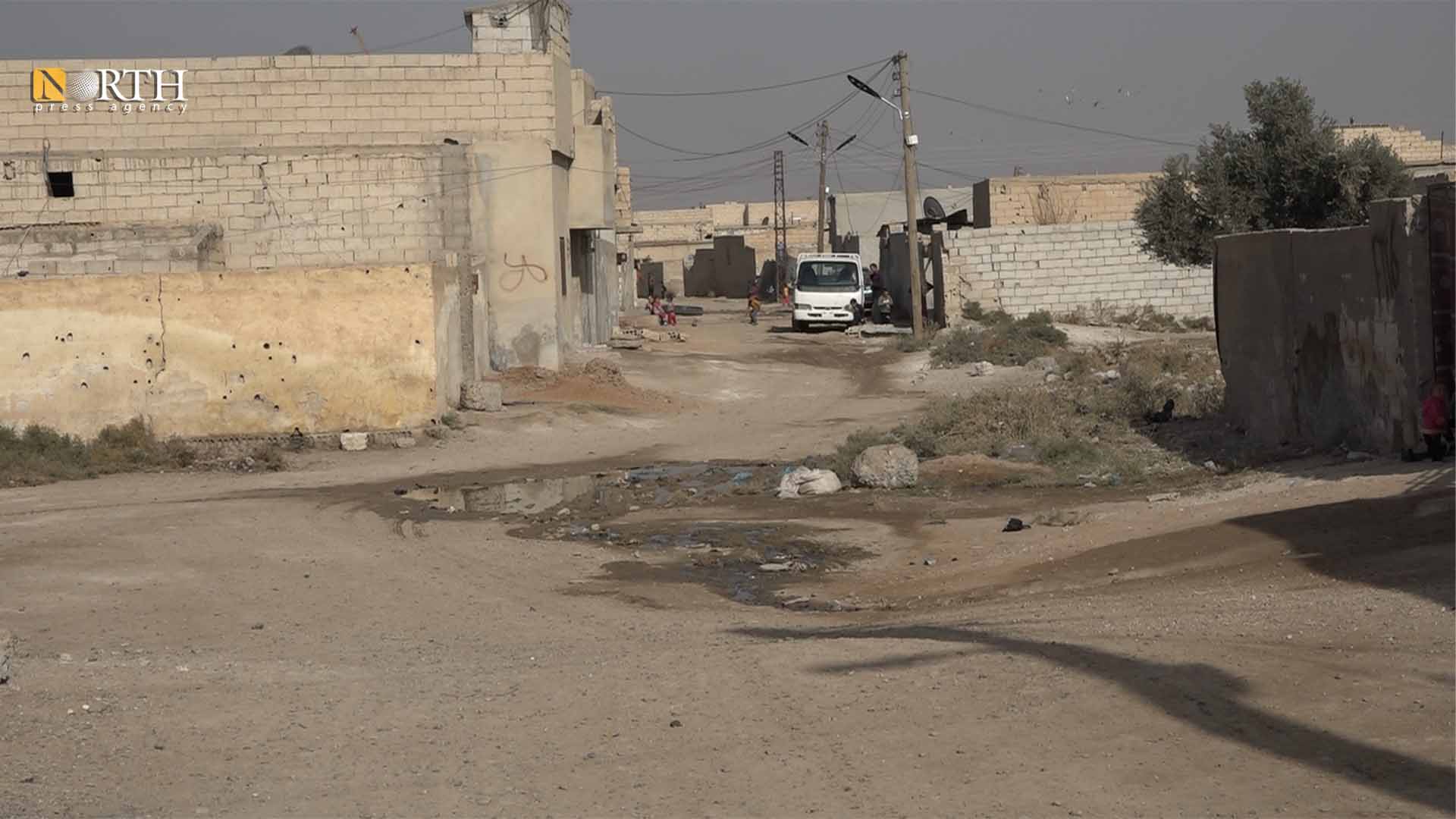RAQQA, Syria (North Press) – The list of what Halima al-Ahmad needs of daily necessities for her displaced family from Tel Abyad to al-Akrad neighborhood in the city of Raqqa, northern Syria, is long, and heating oil and winter clothes seem to be the most prominent.
The family did not send its four children to the neighborhood school, because it was unable to secure their school supplies and buy new clothes for them.
Al-Ahmad told North Press that they and other displaced people from Tel Abyad and Sere Kaniye (Ras al-Ain) in the neighborhood are living in tragic conditions in the absence of relief aid.
The family pays 50,000 SYP per month for the rent of the unequipped house, but its rent is low compared to other houses in Raqqa.
Harsh conditions
Al-Ahmad family did not receive relief aid, despite the passage of more than two years since its escape from the Turkish invasion.
The mother said they sent their 12-year-old son to work for a tire repairer shop to help his father, who works in construction workshops, pay for the house expenses.
The neighborhood council (commune) says the relief aid delivery for the residents and the displaced in the neighborhood is not within its powers.
A few months ago, an organization working in Raqqa conducted an assessment of the neighborhood’s residents and studied cases that needed aid, but whoever prepared the assessment gone and did not return, as one of the residents put it.
The Turkish forces and Turkish-backed armed opposition Syrian factions invaded Sere Kaniye and Tel Abyad in late 2019.
According to data released by AANES, the Turkish invasion of Sere Kaniye and Tel Abyad, displaced more than 300,000 people, most of them Tel Abyad IDPs who settled in the city of Raqqa and its villages in addition to Tel al-Samen camp, north of Raqqa.
Meanwhile, some of Sere Kaniye’s IDPs resorted to Washokani Camp, west of Hasakah, others distributed in 80 schools in Hasakah city and its villages, and in other schools in other different cities.
73-year-old Fatima al-Ibrahim, Tel Abyad IDP who lives in the same neighborhood, was unable to provide warmth for her grandchildren, and decided to send them to the house of one of their uncles until the end of the winter.
For years, the woman has been living without a breadwinner, “All my family members died, one of my sons martyred and his wife kicked me out, and the other was killed.”
The elderly woman lives on alms which offered to her by those she describes as good doers.
No heating supplies
Displaced people living in the city say that they need relief aid, as those who live in camps.
The number of local organizations and associations operating in Raqqa is 110, but work is actually limited to about 20 of them after the closure of al-Ya’rubiyah crossing two years ago, according to the Relief Office of the Social Affairs and Labor Committee of the Raqqa Civil Council.
In July 2020, the (al-Ya’rubiyah/Tel Kocher) crossing was closed to UN humanitarian access to north and east Syria due to the veto of Russia and China, which exacerbated the challenges facing the region, according to civil organizations.
IDPs and other residents living in Akrad neighborhood said they did not receive their allocations of heating oil, in conjunction with the rise in diesel prices on the black market.
The price of one liter of diesel has exceeded 800 SYP in the black market in the city of Raqqa, while the subsidized price is 410 SYP per liter.
Maher Abdullah, head of the legal control department in the fuel company, said the poor preparation of fuel schedules by the communes of the Kurdish neighborhood is the reason behind the delay in distributing heating oil to the residents of the neighborhood.
He told North Press that the distribution of heating oil to the families of the neighborhood will be within the next few days, after re-arranging the schedules in an appropriate manner.

